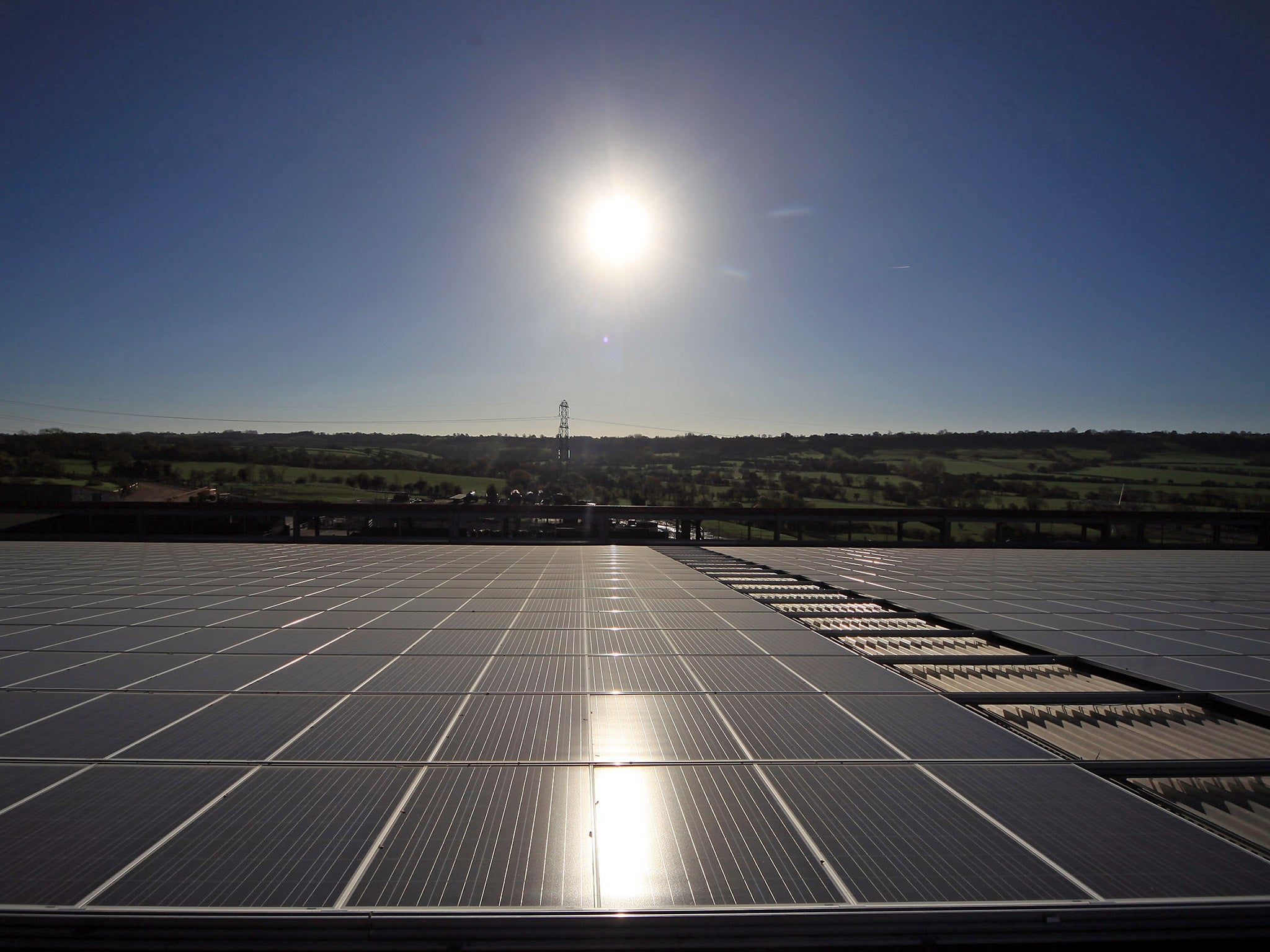UK loses its top energy supplier status after cuts in renewable subsidies
The World Energy Council has downgraded the UK’s top-notch AAA rating

The UK has lost its status as a top-flight energy provider and is in danger of losing further credibility after recent government cuts to onshore wind and solar farm subsidies, a new report warns.
The World Energy Council has downgraded the UK’s top-notch AAA rating for providing secure, affordable and sustainable electricity supplies to AAB after a jump in the relative cost of power as a proportion of the household budget.
The rating is not related to the subsidy cuts. But the Government’s recent decision to end subsidies for onshore wind power and to slash backing for solar farms raises the prospect of a further cut to its rating, which would push the UK down the league table for electricity supplies from its current fourth place – behind Switzerland, Sweden and Norway – warns Joan MacNaughton, executive chair of the World Energy Council.
“The changes to subsidies could put the cost of electricity up in the future by increasing the cost of capital [interest rate]. Renewable energy is very capital-intensive and there is a risk premium for uncertainty,” Ms MacNaughton told The Independent.
The “unexpected” end to support for onshore wind power and the slashing of solar farm subsidies have undermined confidence among potential investors of large renewable energy projects because they fear the government will change the rules again in the future.
“The overall effect of policies, how predictable they are and how transparent causes us to be a bit concerned that it may be an issue in the future in the UK both for low-carbon investment and overall energy investment,” Ms MacNaughton said.
The UK could regain its triple-A rating only if it provided stronger backing for renewable energy, she said.
The report also warned that the UK faced declining domestic fossil-fuel production, the running down of nuclear plants and the closure of coal-powered stations, as well as ageing energy infrastructure – meaning its ranking is set to fall in the future.
The strain on the infrastructure was underlined last week when the electricity operator National Grid asked the power industry to generate more electricity and requested that heavy users switch to back-up supplies because of multiple energy breakdowns.
National Grid chief executive Steve Holliday warned that supplies were likely to be “tight but manageable”, as he predicted it would use these kind of emergency back-up measures seven more times this winter.
The rating downgrade came two days after a leaked letter confirmed the UK was set to produce only 11.5% of energy from renewable sources by 2020 – missing its target of 15 per cent by a quarter. Energy Secretary Amber Rudd, appearing before the Energy and Climate Change Select Committee, blamed the shortfall on the transport and heating sectors, which are included in the energy target.
A DECC spokesperson said:
"The UK is still a world leader for energy - and our priority is providing clean, secure and affordable power for hardworking families and businesses.
"We've made record investments in renewables and are committed to lower-carbon secure energy, such as nuclear and shale gas, which will help keep the lights on for future generations."
Subscribe to Independent Premium to bookmark this article
Want to bookmark your favourite articles and stories to read or reference later? Start your Independent Premium subscription today.

Join our commenting forum
Join thought-provoking conversations, follow other Independent readers and see their replies